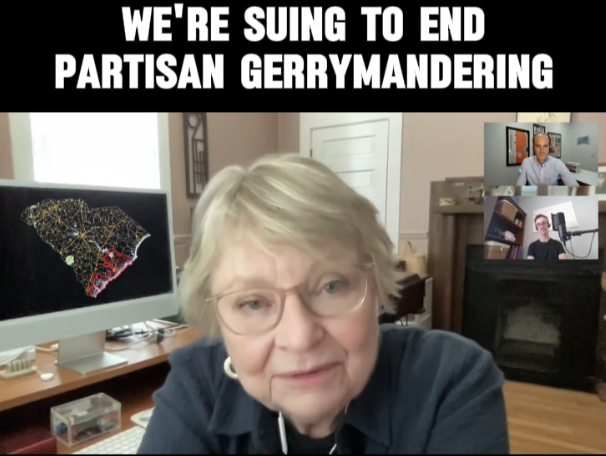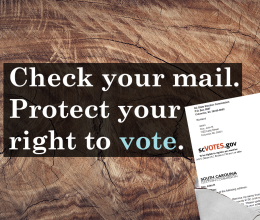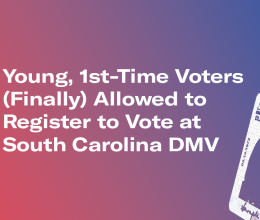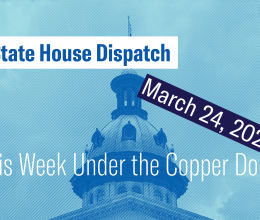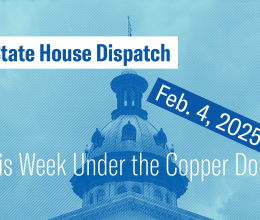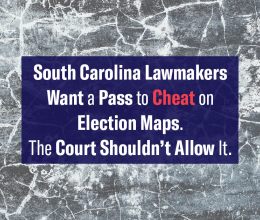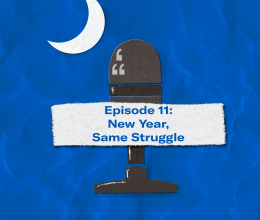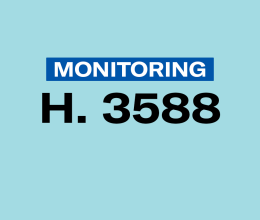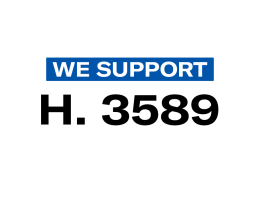We filed a lawsuit July 29 asking the South Carolina Supreme Court to end partisan gerrymandering in South Carolina.
Crucially, the facts of this case are not up for debate: State lawmakers gerrymandered the South Carolina congressional map to artificially entrench their own political power. Not only did they admit it, but they swore to it under oath and bragged about it in the press.
In League of Women Voters of South Carolina v. Alexander, we argue that lawmakers’ confessed goal of contorting the congressional redistricting plan until it met their “political target” violated voters’ constitutional rights to “free and open” elections that are protected “from all undue influence” and where voters exercise “equal influence” over elections. This type of contortion would be wrong no matter which political party did it.
You don’t have to be a legal scholar to understand that they cheated. Consider what they said, in their own words.
Here’s Rep. Jay Jordan (R-Florence), at the October 2022 bench trial in our previous case Alexander v. SC NAACP, admitting that he aimed to “pull the first” (that is, the First Congressional District) “red” (that is, safe for Republican candidates).
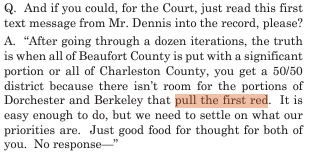
In case that was too subtle, he spelled out what he meant in an answer to a follow-up question:

Or consider this statement from the Senate Majority Leader, who told reporters it would have been “political malpractice” not to protect District 1 as a Republican seat:
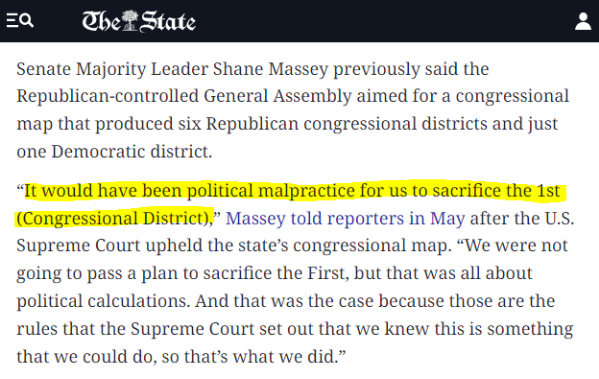
When he refers to “the rules that the Supreme Court set out,” he is referring to a 2019 ruling from the U.S. Supreme Court that partisan gerrymandering claims cannot be brought under the U.S. Constitution. In our new case, we are arguing that the State Supreme Court should step in, because independent rights in our State Constitution forbid this kind of rigging.
In our lawsuit, we ask the Court to start from the established facts and interpret the State Constitution. Similar arguments based on constitutional rights to “free and open” or “free and equal” elections have proven successful in several other states, including Pennsylvania (LWV of PA v. Commonwealth), New Mexico (Grisham v. Van Soelen), and Kentucky (Graham v. Adams).
We are confident in the facts, which we establish on page 1 of the Petition for Original Jurisdiction by directly quoting the lawmakers – for example, when they stated their goal was to establish at least a 53.5% Republican vote share in District 1:
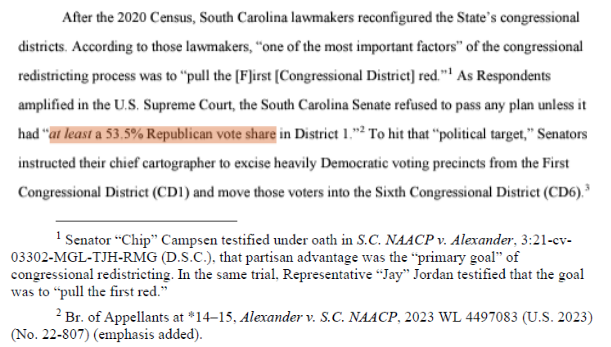
We don’t have to point the finger and accuse anyone of cheating. They boasted about it, and they will continue to do it unless the Court stops them. Now we are asking the State Supreme Court to restore representative democracy to South Carolina voters. Simple as that.
To learn more, check out Episode 9 of the While I Breathe podcast and read the recent opinion piece by the League of Women Voters’ Lynn Teague in The Post and Courier.
